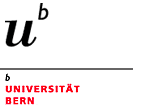Molecular analysis of speciation genes
Two M.Sc. studentships
Petunia exserta is a rare species, found only in few sandstone towers in south-eastern Brazil. P. exserta is closely related to P. axillaris, which is a common weed in Argentina, Uruguay and Brazil. The two species are partly reproductively isolated, but hybridization with P. axillaris remains a major threat to P. exserta and may drive the species to extinction.
P. exserta flowers are red, produce no odor and have exserted stigmas. In contrast, P. axillaris flowers are white and strongly scented, and the relative position of anthers and stigma is different. The flower phenotypes of the two species reflect the difference in their reproductive biology. P. exserta is pollinated by hummingbirds while P. axillaris is pollinated by nocturnal hawkmoths. We have crossed the two species in the laboratory and are studying the genes that cause the difference in flower phenotype. The project will study how P. exserta lost its fragrance, how it regained its red color, and how these traits affect pollinator preference.
Methods
• Classical genetics, QTL mapping
• Phenotypic analysis by gas chromatography and mass spectrometry
• Molecular genetic analysis of candidate genes
• Animal behavior experiments
• Field work in South America
Literature
- Stuurman, J., Hoballah, M.E., Broger, L., Moore, J. and Kuhlemeier, C. Dissection of floral pollination syndromes in Petunia. Genetics 168: 1585-1599 (2004).
- Galliot, C., Stuurman, J., and Kuhlemeier, C. The genetic dissection of floral pollination syndromes. Curr. Op. Plant Biol. 9: 78-82 (2006).
- Hoballah, M.E., Gübitz, T, Stuurman, J., Broger, L., Barone, M., Mandel, T., Dell'Olivo, A., Arnold, M., and Kuhlemeier, C. Single-gene mediated shift in pollinator attraction in Petunia. Plant Cell (2007)
|
|
Contact |

